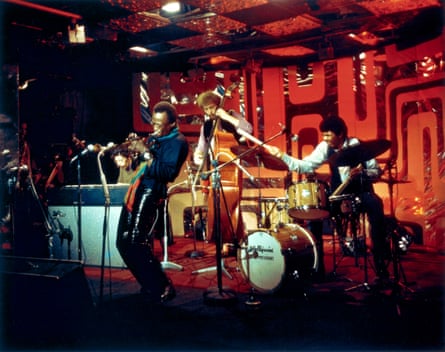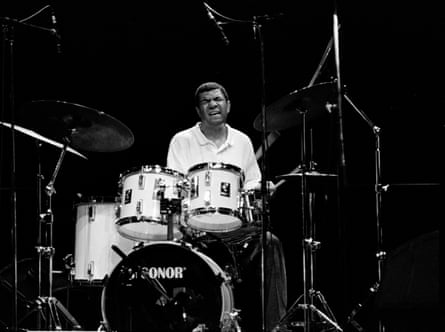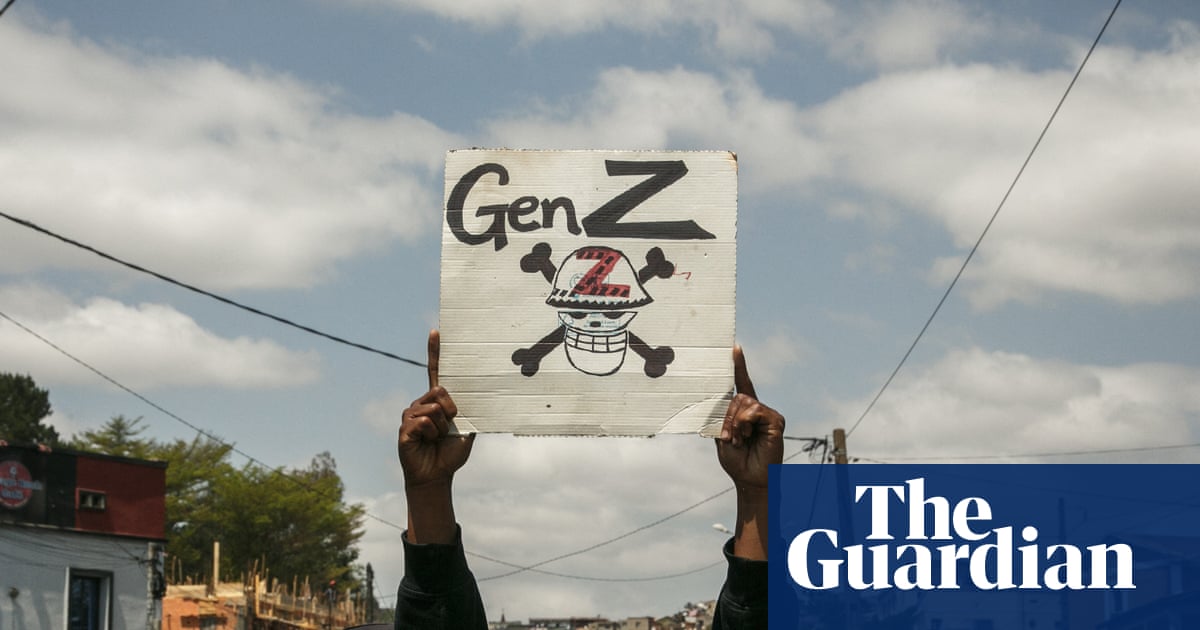Jack DeJohnette, the jazz drummer celebrated as one of the genre’s true greats – who worked with stars including Miles Davis, Sonny Rollins and Charles Lloyd – has died aged 83. A press representative for ECM, the record label that released many of his recordings, confirmed the news though no cause of death was given.
Able to bring dynamic, highly musical playing to open-minded free jazz, R&B-leaning instrumental grooves and everything in between, DeJohnette is perhaps best known as the drummer in Davis’s fusion period, contributing to albums such as Bitches Brew, Jack Johnson and On the Corner. He was also celebrated as a regular sideman and bandleader on elegant, progressive fusion releases from ECM in the 1980s.
DeJohnette was born in Chicago in 1942 and played piano from the age of five or six, as he remembered, continuing the instrument alongside the drums which he picked up in his early teens. “Piano and drums are part of the percussion family,” he later said. “There’s no separation: learning one thing feeds the other.”
He started out singing doo-wop in a vocal group and playing rock’n’roll, but was gradually drawn towards jazz, and from the late 1950s had his own trio. He guested with Sun Ra and his Arkestra, fraternised with the city’s avant-garde names such as Muhal Richard Abrams and Roscoe Mitchell, and sat in for a waylaid Elvin Jones in John Coltrane’s band when they played in Chicago: “A really great, physical and spiritual experience,” DeJohnette said of the latter gig.

He dropped out of college and moved to New York in the mid-1960s to pursue music more seriously, packing his drums along with just $28 to his name. He quickly picked up work with Freddie Hubbard and Jackie McLean, and then a more sustained collaboration with Charles Lloyd in his quartet where he played alongside Keith Jarrett – one of his frequent collaborators over the years in various units.
Time with pianist Bill Evans led him to the edge of Davis’s band at the end of the 1960s, as Davis was bringing in electric instrumentation and forging beyond the boundaries of post-bop. When drummer Tony Williams left, DeJohnette was called up. “I think playing with Miles, with Dave Holland, Chick Corea and Wayne Shorter was a very exciting period,” DeJohnette said of a band that produced Bitches Brew, Big Fun and a series of acclaimed live LPs. “We always couldn’t wait to get on the bandstand to see what kind of mischief we could get into.”
Davis would have his band work up monumental grooves, starting with DeJohnette: “I’d start something and if it was OK he wouldn’t say anything and it would continue, then he’d cue each instrument in and get something going. When it would start percolating, then Miles would then play a solo over that and then let it roll, let it roll until he felt it had been exhausted.”
After making Live-Evil in a septet, which DeJohnette called one of his favourites of the era due to its “funky sound, grungy sound, dirty kind of sound”, he left Davis in 1971, explaining: “I wanted to play a little freer. Miles was moving into a more specific thing that he wanted from the drums, not as much freedom to elaborate.”
DeJohnette also recorded his debut under his own name in 1968, The DeJohnette Complex – the first of around 50 LPs he eventually made as a bandleader or co-leader, including forays back into piano-playing.

His ECM relationship began in 1973 with Ruta and Daitya, a duo album with Jarrett, and as well as releases in his own groups such as Compost, Gateway and New Directions, DeJohnette played with Jan Garbarek, Pat Metheny and others for the label.
DeJohnette became a regular feature on albums for Sonny Rollins from the 1970s onwards, made a number of recordings with Herbie Hancock, and later became a part of Wadada Leo Smith’s Golden Quartet – in among a huge number of other recordings. He also appeared in the Blues Brothers sequel, Blues Brothers 2000.
Throughout, he brought a studied musicality to the drums rather than treating them as a mere backbeat. “I am hearing orchestrally,” he said. “I guess one example would be the cymbals are to my drum set what the sustain pedal is on the acoustic piano. So I am hearing colours.”
A two-time Grammy winner, most recently in 2022 as Skyline (a collaboration with Ron Carter and Gonzalo Rubalcaba) won best jazz instrumental album, DeJohnette was also named a National Endowment for the Arts Jazz Master in 2012.
DeJohnette was married twice, first to Deirdre Davenport, who he met at junior college in Chicago. He met his second wife, Lydia, backstage at Ronnie Scott’s in London in 1966 and she later moved to the US with him. They had two daughters, Farah and Minya. He named a track after Lydia on his 2001 album Time & Space, made with Dave Holland.

 2 months ago
61
2 months ago
61

















































